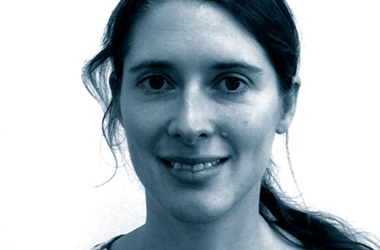RCGP chair Professor Martin Marshall says that PCNs may not be big enough for the ‘at scale’ future model of UK general practice. Similarly, the vision of NHS England’s Five Year Forward View has GPs working at scale, supervising multidisciplinary teams. Everyone appears to be singing from the same hymn sheet. Yet, with the NHS in its precarious state, we must first ensure that there are no unintended consequences.
When our leaders say that the future of the service is to move to larger-scale practices, I cannot help asking whether it’s our ‘scale’ which is at fault, or what is being asked of us? Multidisciplinary teams may be helpful to a degree but, fundamentally, we need more GPs. Might supervising a team of colleagues make our day more stressful and difficult? Could scaling up practices lead GPs, perversely, to reduce their clinical sessions? Has anyone examined the number of clinical sessions undertaken by GPs when compared to the size of a practice? Or the reported satisfaction levels of GPs? Or retention rates, or age of retirement? These are all crucial questions.
Time and again, studies have shown that continuity of care is fundamental to the safe and effective provision of general practice. Yet anyone who’s worked in a larger practice will tell you that continuity almost always suffers as scale increases. If a loss of continuity leads to a greater referral rate into secondary care, more frequent reconsulting, or higher numbers of emergency admissions, again, switching wholesale to larger practices could prove catastrophic.
If small to medium-sized practices, where patients know and trust their GPs, are acting as a dam to the demand coming through to secondary care, a crack in this dam might well be all that is needed to bring down the hospital service. We’ve already seen the dire consequences of putting elective services on hold for months during the pandemic. The NHS doesn’t have the capacity to withstand any extra pressure.
Another risk is that we find ourselves building a two-tier system by default. If our patients’ only option is to join a 50,000 patient practice, which struggles to offer continuity, how many might choose to see a private GP? Will we see a rise in private providers, will GPs will leave to join such a system and will levels of health inequality increase as a result?
Having worked at several super practices, I’ve heard patients’ frustrations: ‘I never see the same doctor twice’, ‘I wish I didn’t have to repeat my history to you again’. I’ve also worked at tiny practices, several of which were very highly rated in national patient satisfaction surveys. One small practice I worked at shared a boundary with a super practice. Every month, more patients would register, moving across from the at-scale model. And yet it’s the smaller practices that our leaders would do away with. Why?
Rather than take the narrow view that we either capitulate and find ourselves in the same position as dentistry, or must all merge into super practices run by NHS trusts or other larger providers, might there not be another solution?
Has the time come where it is necessary that we consider a small means-tested fee to see a GP? A range of support should be available via routes other than general practice (these need not be managed by the PCN – basic medical services are quite enough). Every patient should have easy, free access to social support, psychological services, children’s centres and family planning – to name a few. It’s essential that we find a way to allow GPs to get back to offering decent, accessible healthcare. If patients had an incentive to seek help elsewhere first (and these services were widely available and appropriately resourced) – then practices (of all sizes) might be sustainable, GPs might not quit in their droves, and we might be able to return to the effective ‘gatekeeper’ and advisory role that we have fulfilled for so long.
I admit I’m getting rather jaded with being told that my future is working at an anonymous at-scale GP provider. If I’m totally honest, this isn’t what I came into general practice to do. I’d like to be a GP. At a family practice. With a manageable workload, and a cohort of patients who I can get to know over time. Is this really too much to ask?
Dr Katie Musgrave is a newly-qualified GP in Devon and quality improvement fellow for the South West
Pulse Writing Competition 2024
Take our September 2024 survey to potentially win £200 worth of tokens














The only thing scaling up in the UK is sertraline usage, cocaine use, empty disheartened referrals, impatience and ungratefulness and a blatant corrupt hierarchy and 5-year forward plan disintegrated uncaring system (DUS) “sell off”.
Your quote ;” The NHS doesn’t have the capacity to withstand any extra pressure.” underlines the aims behind this. The intention is to push people to moving to the private sector, which, thanks to huge bailouts during the pandemic, is now financially sound and well-prrepared to take yet even more charged-for patients, even if it does leave them with no money for food and heating after blowing their savings on core care needs thy have paid their NHS and NI stamps for for the last 60 years.